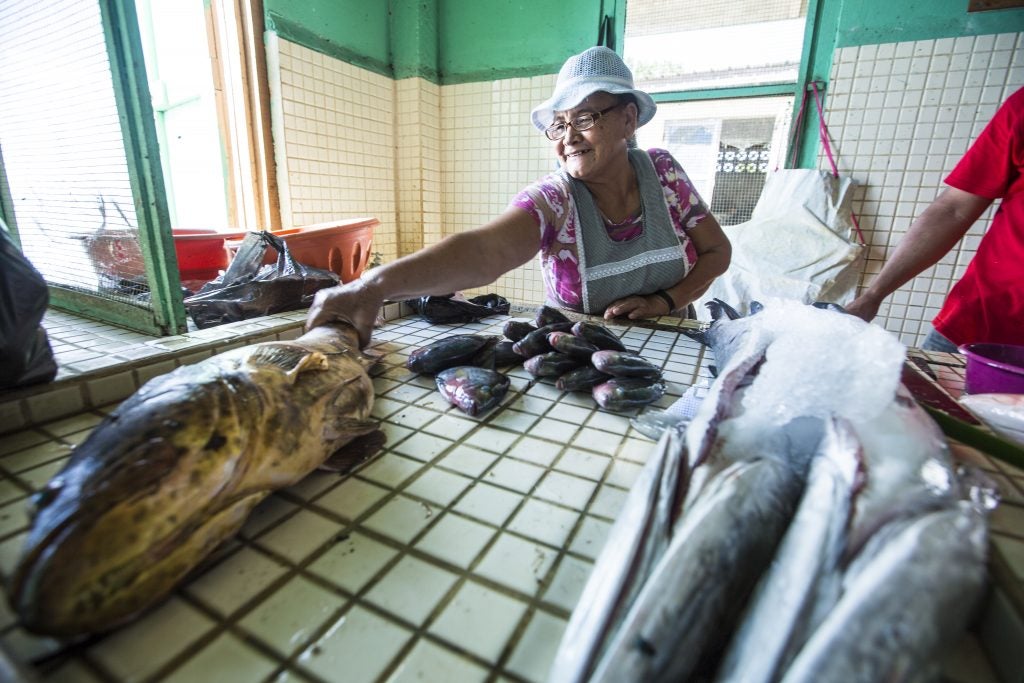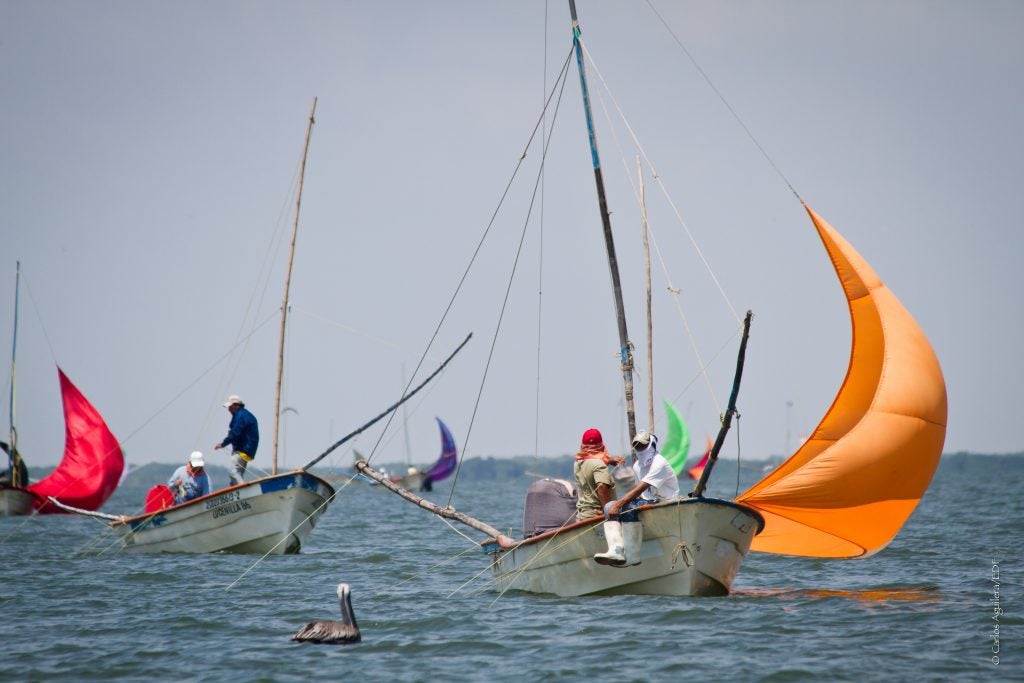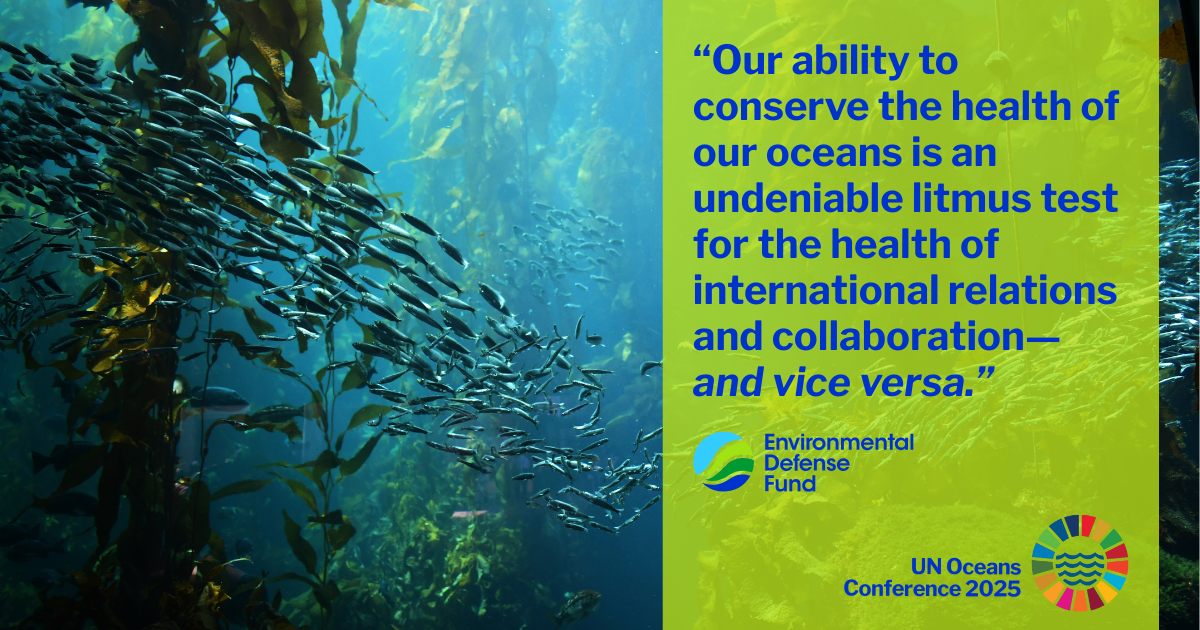How knowledge-sharing will improve multispecies fisheries
 In many fisheries, many species are caught at the same time. These are called multispecies fisheries, and the fact that they catch many species together, with the same gears, means that the different species are caught at the same rate. The trouble is, some species are productive enough to withstand high catches while others are not. So as a result, the low-productivity species get fished out, reducing overall yield, markets for diverse species and economic and ecological resilience — resulting in serial depletion. While many single-species fisheries are becoming more sustainable thanks to science-based management strategies, multispecies fisheries often face greater sustainability challenges, and these challenges will grow in the face of climate change.
In many fisheries, many species are caught at the same time. These are called multispecies fisheries, and the fact that they catch many species together, with the same gears, means that the different species are caught at the same rate. The trouble is, some species are productive enough to withstand high catches while others are not. So as a result, the low-productivity species get fished out, reducing overall yield, markets for diverse species and economic and ecological resilience — resulting in serial depletion. While many single-species fisheries are becoming more sustainable thanks to science-based management strategies, multispecies fisheries often face greater sustainability challenges, and these challenges will grow in the face of climate change.
Multispecies fisheries may involve commercial, artisanal and recreational sectors and can be large-, medium- and small-scale, often spanning multiple landing sites. This complexity hinders monitoring and assessment to establish adaptive science-based management for resilient multispecies fisheries, and puts at risk food sources, jobs, profits and coastal community livelihoods and culture.
Worldwide, there is considerable interest in developing fishery management options that balance social, economic and ecological objectives for multispecies fisheries.
Ideally, multispecies fisheries management should strive not only to produce good yields from single stocks, but also to avoid serial depletion and prevent adverse impacts of fishing on marine ecosystems.
What are the options for multispecies fisheries? How can we balance the tradeoffs between traditional fishery management and other multispecies management options, while minimizing impacts on catch and profit of target species? Providing a platform at this year’s International Marine Conservation Congress, or IMCC6, to share experiences related to addressing these questions and managing multispecies fisheries in the face of climate change will allow for valuable dialogue and knowledge exchange. Bringing together scientists, academics and practitioners to share case studies offers the opportunity to identify lessons learned and to present strategies for managing multispecies fisheries options that could be scaled-up around the world. And, an exciting upcoming symposium at IMCC6 may provide a much-needed starting point.
Sharing Knowledge at IMCC6
Finding ways to evaluate and learn from other multispecies fisheries across different geographies means gaining a deeper insight into the pathways and tools used to transition fisheries management to more science-based solutions.

These solutions allow fisheries to meet environmental, social and economic goals — even in the face of climate change.
Practical experience can elucidate many insights into how to improve the performance and management options for multispecies fisheries; even under different governance, data-availability contexts and at different stages of implementing multispecies management.
An upcoming virtual symposium at IMCC6 provides an opportunity for exchange among community members around the world by sharing experiences and knowledge on how to make multispecies fisheries resilient in the face of climate change. EDF is hosting the symposium Resilient Multispecies Fisheries to collect information on the pathways, decisions and tools employed to enhance science-based fishery management in small-scale, data-limited contexts. We will be taking a closer look at eight different multispecies fisheries representing different global challenges.
The goal of the symposium is to help identify common themes and new ideas regarding ways to manage multispecies fisheries. Ultimately, all of the knowledge passed along by presenters and participants will also be shared, through blogs and a peer-reviewed manuscript, documenting examples of multispecies management in the face of climate change.
Be a part of the conversation and the solution! Join the Resilient Multispecies Fisheries symposium, and participate in the discussion on how to move toward resilient multispecies fisheries. Read on for more info on the symposium and how to attend.
This year, the entire IMCC6 conference is online — register here. Registration ranges from 10-25 euros.
Environmental Defense Fund’s Resilient Multispecies Fisheries symposium will consist of two back-to-back sessions on Aug. 28, 2020.
Over 2.5 hours, 10 presenters will share their experiences. The first session is from 2:00-3:30 p.m. UTC and the second session is from 5:00-6:30 p.m. UTC. Find the agenda below.
Agenda: August 28, 2020, all presentation times are in UTC
- 2:05-2:20 p.m. — Science-based Multi-Species Fisheries Assessment of Lagonoy Gulf, Philippines: Experiences Using EDF tools
- 2:20-2:35 p.m. — Creating climate resilient multi-species management plans through learning networks
- 2:35-2:50 p.m. — Quantifying and visualizing causal interaction networks between target species landings in a multispecies recreational fishery
- 2:50-3:05 p.m. — Multispecies management in the Mexican Caribbean and the Pacific Coast
- 3:05-3:20 p.m. — Managing Multispecies Coral Reef Fisheries to Achieve Conservation, Livelihood, and Food Security Goals
- 3:20-3:30 p.m. — Q & A
- Break 3:30-5:00 p.m. — EDF will host an online discussion for those interested in joining
- 5:05-5:20 p.m. — Using Bioeconomic Modeling to Guide Future Management of Multispecies Fisheries in Southeast Cuba
- 5:20-5:35 p.m. — An Alternative Approach to Managing Multispecies Fisheries
- 5:35-5:50 p.m. — A typology as a tool to disentangle the small-scale fisheries complexity
- 5:50-6:05 p.m. — Traditional ecological knowledge and small scale fisheries, improving efficiency in sampling design for multispecies management
- 6:05-6:30 p.m. — final Q & A












